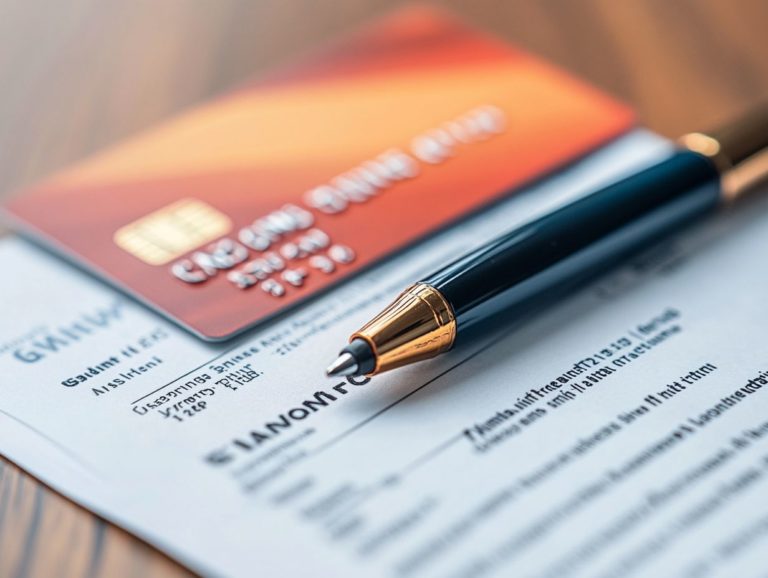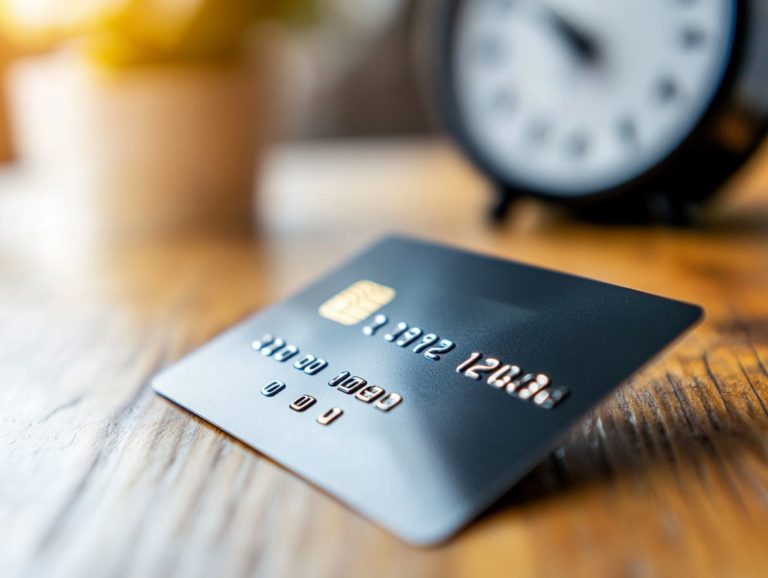What Is a Charge Card?
Charge cards can be a fantastic financial tool when used wisely. They offer benefits that can enhance your spending power. However, they are often shrouded in misunderstanding. This article delves into the definition and essential characteristics of charge cards, illuminates how they differ from credit cards, and offers valuable tips for responsible usage.
It also examines the advantages and potential pitfalls associated with charge cards, as well as alternatives that merit consideration. Immerse yourself in this exploration to determine whether a charge card aligns with your financial aspirations!
Contents
Key Takeaways:
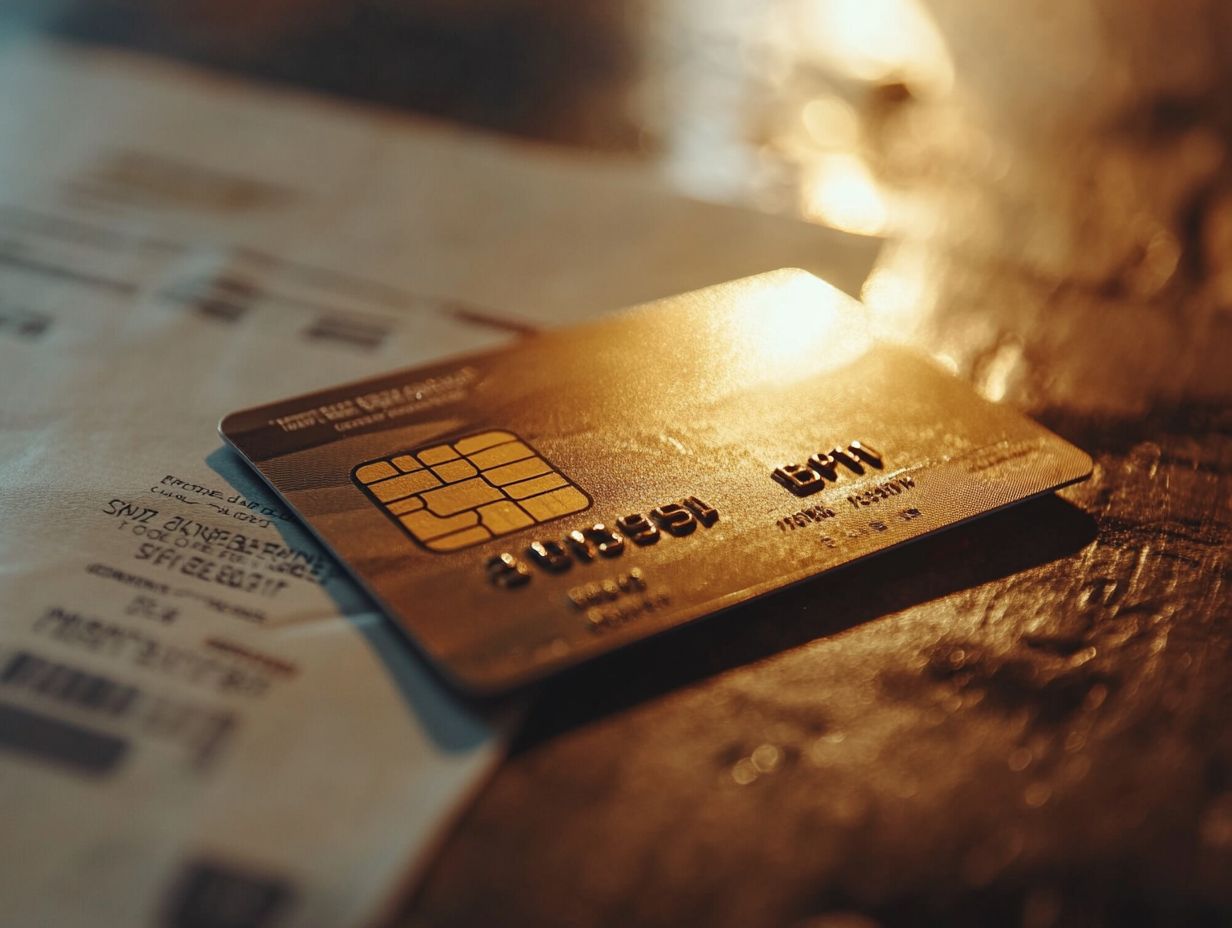
- Understand that a charge card is a type of payment card that allows you to make purchases without incurring interest charges, but requires you to pay off the full balance each month.
- Recognize that charge cards differ from credit cards in that they do not have a preset spending limit and offer rewards and perks for responsible use.
- To effectively use a charge card, budget wisely and pay off the balance in full each month to avoid fees.
Understanding Charge Cards
Charge cards represent a distinctive payment option, primarily provided by esteemed financial institutions like American Express. They give you the power to make purchases without a pre-set spending limit, granting you remarkable flexibility in your financial decisions.
Unlike traditional credit cards, which often come with hefty annual fees and the burden of accruing monthly interest, charge cards require you to settle your balance in full each month. This allows you to avoid late fees and helps build a strong credit history.
How Charge Cards Differ from Credit Cards
Charge cards and credit cards each play distinct roles in consumer finance. Charge cards present a range of advantages that can profoundly shape your financial choices.
Unlike credit cards, which permit balance carry-over and frequently come with hefty annual fees, charge cards require you to settle your balance in full each month. This requirement influences how much of your available credit you use each month and alters the landscape of late fees, offering a different approach to managing your finances.
Key Differences Between Charge and Credit Cards
The key differences between charge cards and credit cards lie in their payment structures and the benefits they bring, ultimately shaping your overall financial strategy. With charge cards, you re required to pay the balance in full each month. This practice can boost your payment history and credit scores while offering flexible spending options and attractive rewards that often remain elusive with traditional credit cards.
On the flip side, credit cards grant you the freedom to carry a balance over multiple billing cycles, though this privilege often comes with interest fees. While this flexibility can be advantageous for managing unforeseen expenses, it demands disciplined repayment habits to prevent slipping into a debt trap. Credit cards frequently entice you with rewards programs ranging from cash back to travel points, but the fees associated with charge cards can sometimes be outweighed by the superior rewards they provide.
Thus, grasping these distinctions is crucial for anyone looking to manage consumer credit wisely. Ensure that your choice aligns seamlessly with your financial goals and spending habits.
Using a Charge Card
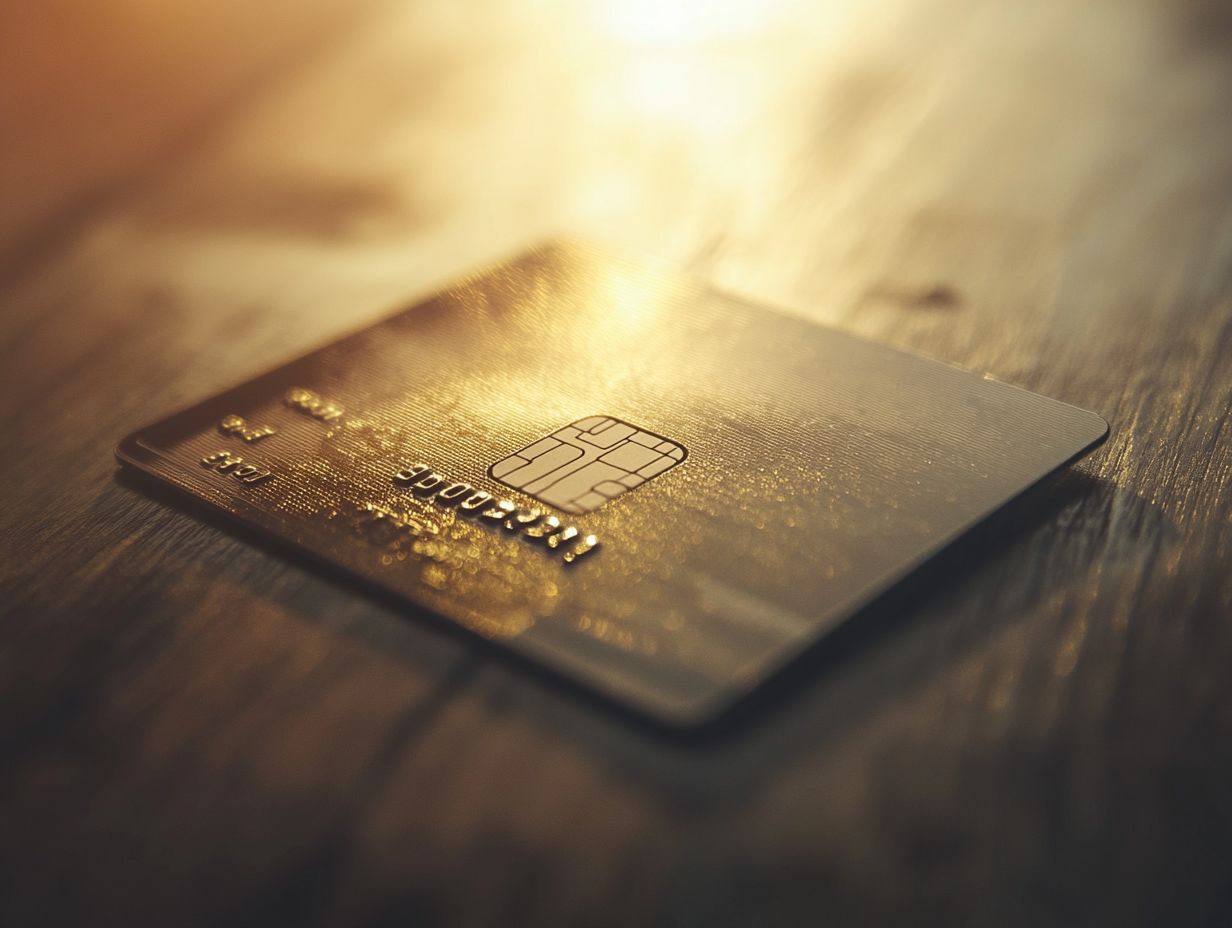
Utilizing a charge card demands a keen understanding of its distinct structure and terms, giving you the power to make informed financial decisions that can elevate your credit scores and payment history.
It s essential for you to pay your balance in full each month to steer clear of late fees. This underscores the importance of managing your spending within your means while maximizing the benefits the card offers.
Ready to explore the power of charge cards? Dive in and see how they can benefit you!
Tips for Responsible Use
Responsible use of a charge card relies on a few key strategies. Set a personal spending limit that fits your budget and promise to pay off the balance in full each month.
This approach prevents financial strain and boosts your credit history. Incorporate practical budgeting techniques like tracking your expenses daily and categorizing them.
These methods help you stay within your limits. Use reminders to ensure timely payments; this improves your credit score and cuts down on interest charges.
By consistently managing your charge card balances, you enhance your creditworthiness. This opens doors to better loan terms and interest rates.
Establishing good financial habits today creates a strong foundation for future savings and investments, nurturing your overall financial well-being.
Benefits of Using a Charge Card
The benefits of using a charge card extend beyond convenience. They offer a variety of enticing rewards that can elevate your consumer credit profile.
Providers like American Express provide numerous perks, including travel rewards, cash back, and exclusive offers. These features significantly enhance the value of your charge card, making it a smart choice for savvy spenders.
Rewards and Perks
Charge cards are often packed with rewards and perks, especially from top providers like American Express. These rewards can include travel bonuses, cashback offers, and flexible spending options.
Many charge cards come with exclusive benefits like access to special events and concierge services. You can earn points on daily purchases, redeemable for flights, hotel stays, or fine dining experiences.
By using your card for regular expenses and paying off the balance monthly, you avoid interest fees and quickly accumulate rewards. Know the specific terms to maximize these benefits; responsible usage is key to unlocking your card’s full potential.
Potential Risks of Using a Charge Card
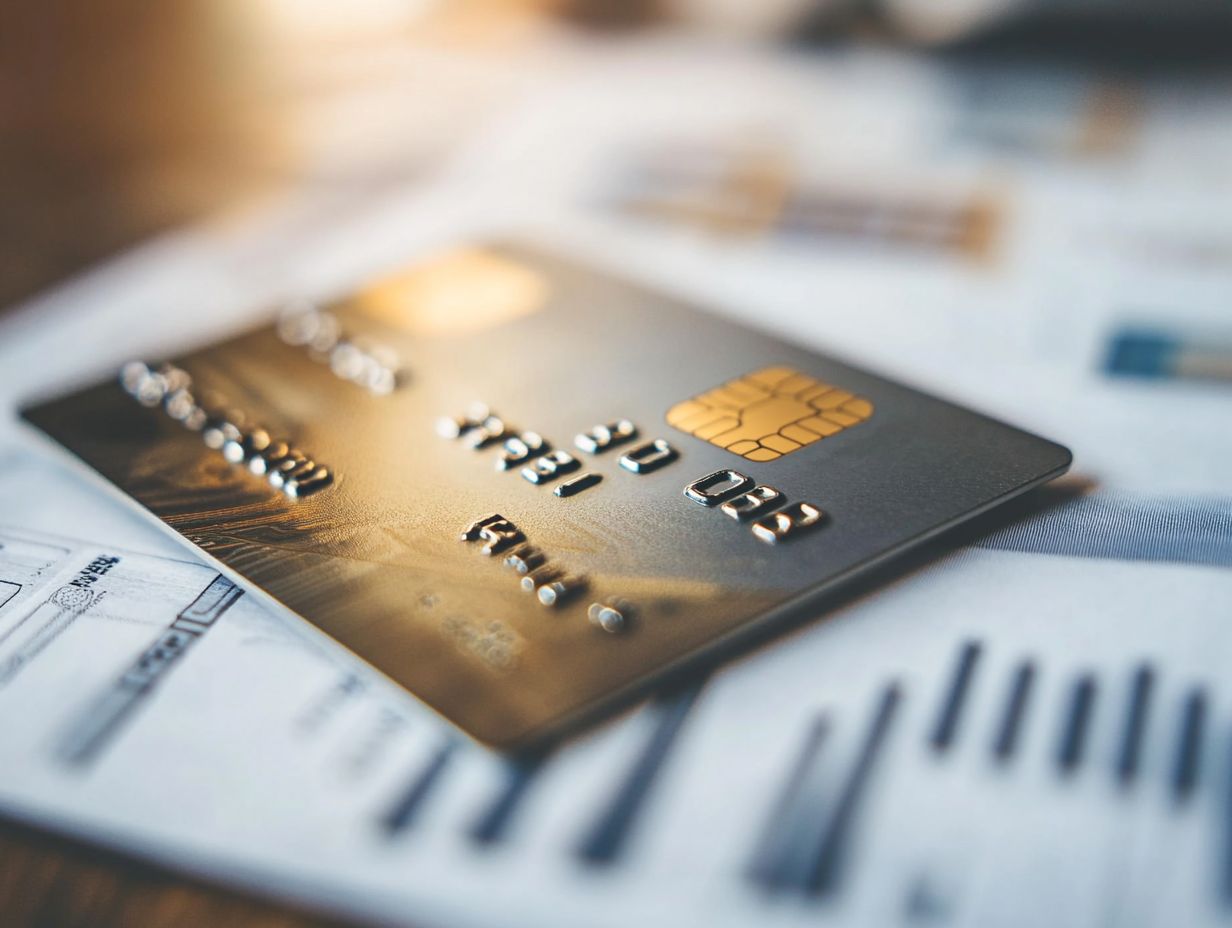
Charge cards offer numerous benefits but come with risks. You must navigate these carefully to maintain a healthy credit score and avoid financial pitfalls.
Be aware of potential drawbacks like high annual fees and the need for timely payments. Late fees can harm your financial standing if not managed well.
Fees and Interest Rates
Charge cards can carry various fees, including high annual fees and potential late fees. Understanding these costs is crucial for your financial health.
Unlike traditional credit cards, charge cards require full payment each billing cycle, helping you avoid interest charges. However, be mindful of the fees that can still pose risks.
Familiarize yourself with these costs to make informed financial decisions. Knowing about late payment charges or fees for exceeding limits can help you avoid unexpected expenses.
Minimizing missed payments enhances your credit score and opens doors to better financial opportunities. Understanding how fees affect your spending can lead to smarter choices and a more stable financial future.
Alternatives to Charge Cards
Looking for financial solutions beyond traditional charge cards? You ll find a variety of alternatives that cater to different needs and goals.
Options range from credit cards to prepaid cards and digital wallets. Each choice offers unique flexibility and rewards designed to fit your financial strategy while affecting your credit in significant ways.
Other Payment Options to Consider
Exploring various payment options opens a world of choices that align with your spending habits. Whether you’re considering a charge card, credit card, or digital wallet, each option has its own advantages and drawbacks.
Charge cards have higher spending limits and no preset spending cap, making them attractive for smart spenders. However, they require full payment each month, which may limit flexibility.
On the other hand, credit cards provide greater purchase protection, which serves as a safety net that helps you get your money back if something goes wrong with your purchase, along with attractive rewards programs. However, if not handled responsibly, they can lead to debt issues.
Digital wallets offer the convenience of quick transactions and enhanced security, but might not be accepted everywhere traditional cards are.
Understanding these options can empower you to make the best financial choices for your future!
Frequently Asked Questions
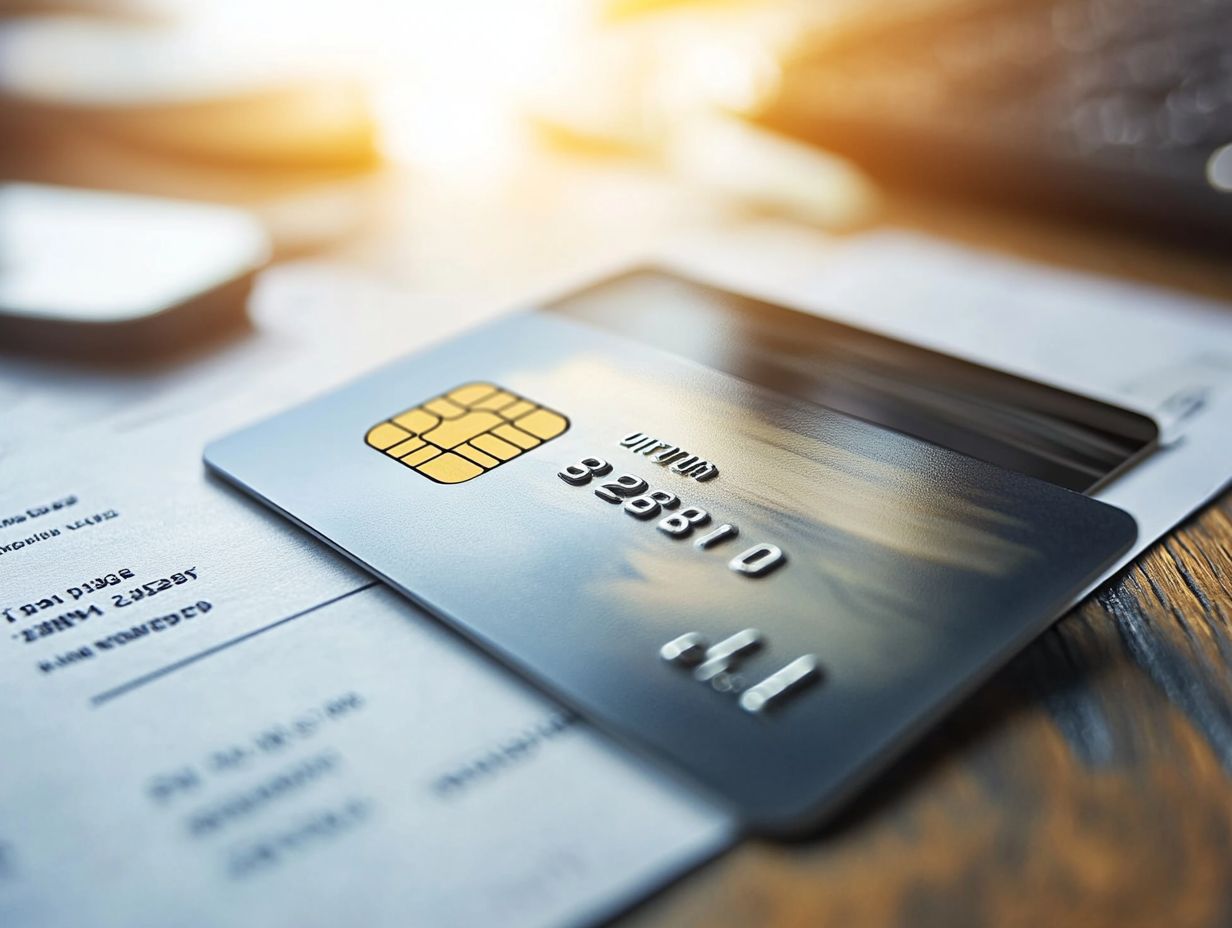
What Is a Charge Card?
A charge card is a type of payment card that allows the holder to make purchases without using cash. It differs from a credit card because the balance must be paid in full each month, rather than carrying a balance over time.
How is a charge card different from a credit card?
A charge card must be paid in full each month, while a credit card allows for carrying a balance over time. Charge cards usually have stricter credit requirements and higher annual fees.
What are the benefits of using a charge card?
Using a charge card can help you avoid accruing credit card debt, as the balance must be paid in full each month. It can also help you maintain a good credit score by showing responsible payment habits.
Are there any drawbacks to using a charge card?
One drawback is that you must pay the balance in full each month, which may be difficult for some individuals. Charge cards also tend to have higher annual fees and stricter credit requirements than credit cards.
Can a charge card be used like a credit card?
No, a charge card cannot be used like a credit card. While both can be used to make purchases, a charge card requires the balance to be paid in full each month, while a credit card allows for carrying a balance over time.
How can I apply for a charge card?
You can apply for a charge card through a bank or credit card company. You will likely need to meet certain credit requirements and provide personal and financial information to be approved.

